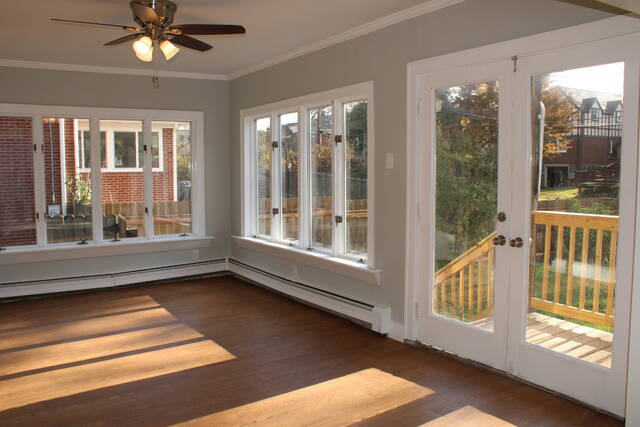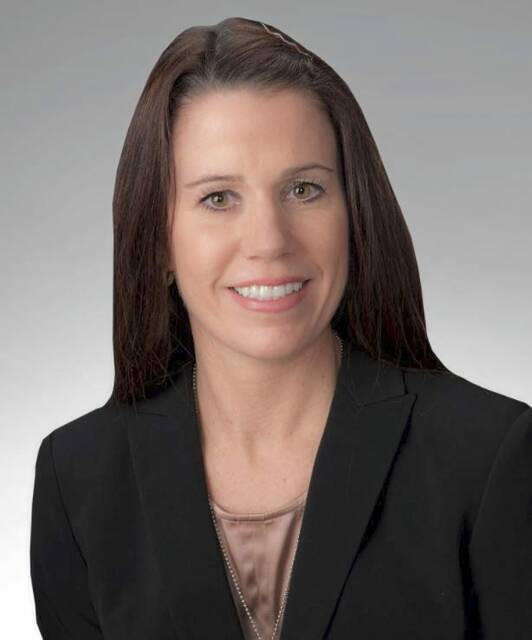Kristen Johnson clearly remembers the day her husband Jerry was diagnosed with dementia four years ago. The couple drove home from the neurologist’s office without saying a word.
“It was a horrible diagnosis because there’s no cure for it,” she said. “It was like, what do we do now?”
At his next appointment, doctors recommended Jerry sign up for the BriTE Wellness program, an innovative, interactive program that promotes brain and physical health and wellness through its four components: Fitness, creative arts, music and cognitive stimulation. The program offers courses three days a week along with access to an interactive computer program, Smart Brain, that provides a wide range of visual, auditory and problem-solving games and tasks to keep the mind engaged.
The program is geared towards folks suffering from mild cognitive impairment. It’s not a cure for memory loss, but is aimed at slowing down cognitive decline to give members more quality time. Some have joined as a preventative measure to keep their minds and bodies active as they age. Members thrive through social interactions and call each other family.
Jerry, 77, of Ross Township, a retired lawyer, immediately fell in love with the program. Four years and a pandemic later and he still likes nearly every aspect of the program.
“It’s his happy place,” Kristen said. While he loves the in-person program, Jerry stayed connected and active throughout covid-19 by participating in BriTE’s courses online. That was a shift the nonprofit had to make quickly at the start of the pandemic to keep its members involved during a time that pushed many into isolation.
“When covid came, BriTE really had to adjust,” executive director Paul McComb said. “We’re working with the most vulnerable population.”
It took them one week to go from in-person classes in Shadyside — where they had moved to from Oakland just weeks before the pandemic shutdown — to online meetings via Zoom. That wasn’t an easy jump, especially for the aging population that ranges from 63 to 93 years old.
“We spent the first half-hour for at least the first two months problem-solving. Answering, ‘How do I do this? How do I do that?’ We spent hours on the phone with some members and their family members trying to figure things out,” said outgoing program coordinator Robin Sullivan.
Many of the members relied on their families to help them get online.
Still, not all were able to make the switch. While some participants left the program, which now bolsters 22 members, many did their best to find a way to make it work.
For two members, that meant picking up a telephone and calling in to each class. Teachers were advised to give more detailed verbal cues to help the members follow along, both online and via telephone.
BrITE, which is formulated after a program started in Spain, was brought to the region with the collaborative work of doctors at the University of Pittsburgh. The half-day program runs three days a week from 8:30 a.m. to a little after noon. Mornings begin with socialization, positive affirmations and the celebration of a national holiday. Then, members participate in 50-minute classes in music, fitness and creative expression before a mindfulness activity to cap off the day. At home, they’re encouraged to utilize the Smart Brain program three days a week for 50 minutes each to further stimulate their mind.
Members are given an initial assessment, which they repeat every six months. Data shows that cognitive impairment has slowed down in many clients, McComb said. Roughly 90 percent of members after the first six months show improved upper and lower body strength and balance.
The organization has received foundation support to help it make the switch to virtual and provide scholarships for those who can’t afford the program.
With classes like art and music, Zoom classes required a lot more explanation from the instructors.
Leigh Ann Hillegas, creative expressions instructor for nearly five years, was used to being able to stand next to members and help them along with their watercolors or paintings. Instead, with Zoom and even more so when there were members utilizing the telephone members, she had to provide more detailed directions verbally.
“We’re using different areas of their brain. It’s decision making, what they want to use, how they want to approach the project and making choices on their own,” Hillegas said. She encourages members to use their own creativity. Her instructions are only guidelines.
For Hillegas, the one-week turnaround from in-person classes at the height of the pandemic was impressive.
“It was the most amazing thing that I’ve ever experienced. There were, of course, kinks and trying to work out issues with ‘mute’ and ‘unmute.’ But it was amazing. We just kept going. (The members) were happy to be together. They were happy to be doing the projects,” she said.
She sees BriTE as a lifesaver during the pandemic, because it kept its members active and not feeling isolated.
Marcia Fleishman, 78, of O’Hara Township, said it was almost too easy for her to switch to online courses.
She joined BriTE three years ago after her husband, Bob, 82, began experiencing what they suspect is mild cognitive impairment.
After bringing him to a class, she too fell in love with the program. So, she signed up, as well. While she hears from friends that they’re bored at times, BriTE keeps her busy and moving her body and working her mind. Bob doesn’t participate in the program as much these days. So, the switch to online has been nice. He can sleep in while she logs on to class or even cooks him breakfast.
“It’s my happy place. If we can’t see people in person, it’s so nice to be able to see people and talk and discuss and know what’s going on for other people,” Marcia said.
In early October, BriTE resumed in-person classes. While it moved out of its home in Shadyside, the organization now rents space at Glenshaw Valley Presbyterian Church. Most of its clients, though, still are utilizing the virtual option. Only a handful have gone back to in person, so far. Whether you’re in the virtual or in-person class, everyone comes together in one space to learn.
McComb sees this as a way for the organization to grow and help more people, not just in Pittsburgh.
“I really feel like BriTE gained something,” he said of the pandemic. “We moved out of our brick and mortar walls and now we are open and available to anyone.”
For more on the program, visit www.britewellness.org or call 412-404-2405.







